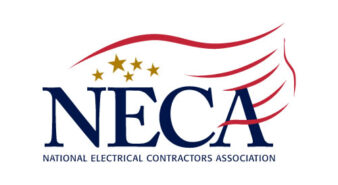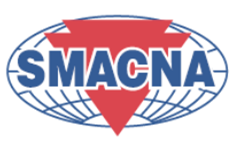Jaworski’s Foundation Jaws Youth Playbook Donates Back to School Supplies to PAL Students Philadelphia, PA (August 6, 2024) – Former Eagles Quarterback, Ron Jaworski and his foundation, Jaws Youth Playbook (JYP) are teaming up with Bradford White Water Heaters, to host a “Back to School Pep Rally” for the children of Philadelphia Police Athletic League Read more
contractors

Falls Church, Va. — Plumbing-Heating-Cooling Contractors National Association (PHCC) unveils Jeff Butler and Mary Kelly as the keynote speakers for CONNECT 2024 in Birmingham, Alabama, October 7-10, at the Birmingham Jefferson Convention Complex. Jeff Butler is a workplace strategist, who has offered expertise to help companies like Amazon, Google and John Deere foster a harmonious Read more
Falls Church, Va. — Plumbing-Heating-Cooling Contractors National Association (PHCC) unveils Jeff Butler and Mary Kelly as the keynote speakers for CONNECT 2024 in Birmingham, Alabama, October 7-10, at the Birmingham Jefferson Convention Complex.

Jeff Butler is a workplace strategist, who has offered expertise to help companies like Amazon, Google and John Deere foster a harmonious and high-performing workplace. Butler will present a keynote address, “Building an Effective Multi-Generational Workplace.” He will also lead a breakout session on the topic of “Winning the Talent War.”
 Mary Kelly is a Council of Peer Award of Excellence speaker, best-selling author and Navy commander. At CONNECT, Kelly will share various stories and experiences of interest to p-h-c contractors during her keynote address, “Why Leaders Fail and the 7 Prescriptions for Success.” Kelly will also lead a breakout session, “Master Your World,” where she will emphasize effective tactics, practical strategies and innovative solutions that are tailored to dilemmas faced by today’s leaders.
Mary Kelly is a Council of Peer Award of Excellence speaker, best-selling author and Navy commander. At CONNECT, Kelly will share various stories and experiences of interest to p-h-c contractors during her keynote address, “Why Leaders Fail and the 7 Prescriptions for Success.” Kelly will also lead a breakout session, “Master Your World,” where she will emphasize effective tactics, practical strategies and innovative solutions that are tailored to dilemmas faced by today’s leaders.
“I know that many attendees, including myself, are anticipating the remarks that Jeff and Mary will share,” says Joe Cornetta, PHCC national president and co-owner of Cornetta Brothers, Inc., Elmont, New York. “We are excited to have these two leaders join us and help offer invaluable insights to the industry.”
For more details, including the schedule-at-a-glance, visit phccweb.org/CONNECT. This site offers information on education sessions, speakers, exhibitors, registration and hotel reservations, as well as the many attractions of Birmingham, known as “The Country’s Best Kept Secret.”
Washington, D.C. — In a landmark event, the National Electrical Contractors Association (NECA) along with the Mechanical Contractors Association of America (MCAA), the Sheet Metal and Air Conditioning Contractors National Association (SMACNA), and The Association of Union Constructors (TAUC) officially signed a strategic alliance agreement on July 10, 2024. The importance of all four associations Read more
Washington, D.C. — In a landmark event, the National Electrical Contractors Association (NECA) along with the Mechanical Contractors Association of America (MCAA), the Sheet Metal and Air Conditioning Contractors National Association (SMACNA), and The Association of Union Constructors (TAUC) officially signed a strategic alliance agreement on July 10, 2024.
 The importance of all four associations coming together emphasizes the combined commitment to collaboration and innovation through all facets of the construction and maintenance industry. The agreement solidifies a unified front among these prominent organizations to address industry challenges and leverage collective strengths. It also highlights the value of cohesive efforts in advocating for policies that support the growth and stability of the construction sector at national and regional levels.
The importance of all four associations coming together emphasizes the combined commitment to collaboration and innovation through all facets of the construction and maintenance industry. The agreement solidifies a unified front among these prominent organizations to address industry challenges and leverage collective strengths. It also highlights the value of cohesive efforts in advocating for policies that support the growth and stability of the construction sector at national and regional levels.
 By working together NECA, MCAA, SMACNA and TAUC aim to develop and promote best practices, enhance safety standards, and drive technological advancements across their respective sectors.
By working together NECA, MCAA, SMACNA and TAUC aim to develop and promote best practices, enhance safety standards, and drive technological advancements across their respective sectors.
David Long, CEO of NECA said, “Today’s agreement represents a pivotal moment for our industry. By uniting four leading trade associations, we are reinforcing our dedication to collaboration and innovation across every aspect of the construction and maintenance sector. This enables us to address the complexities of modern construction more effectively and deliver unparalleled value to our members and their clients.”
 Timothy J. Brink, CEO of MCAA, echoed this sentiment, stating, “MCAA is thrilled to enter into this Strategic Alliance Agreement with NECA, SMACNA, and TAUC. This collaboration represents a significant step forward in unifying our efforts to address the critical issues impacting the construction and maintenance industry. Together, we will drive innovation, enhance safety, and foster growth for our unionized contractor members, ensuring the continued leadership of America’s construction capabilities on the global stage.”
Timothy J. Brink, CEO of MCAA, echoed this sentiment, stating, “MCAA is thrilled to enter into this Strategic Alliance Agreement with NECA, SMACNA, and TAUC. This collaboration represents a significant step forward in unifying our efforts to address the critical issues impacting the construction and maintenance industry. Together, we will drive innovation, enhance safety, and foster growth for our unionized contractor members, ensuring the continued leadership of America’s construction capabilities on the global stage.”
Aaron Hilger, CEO of SMACNA conveyed, “Trade associations set a high bar for what it means to work together for the benefit of everyone. SMACNA is pleased to formalize ways that we will collaborate with our colleagues to advance practices and procedures that will grow our professions and help the people dedicated to building a better America and world.”
 Daniel Hogan, CEO of TAUC, added, “This agreement is a great step forward for the construction and maintenance industry, and formalizes something we have known for a long time – we are at our best when we work together. TAUC is all about collaboration, and bringing all of these associations together will benefit all of us in the industry for years to come”
Daniel Hogan, CEO of TAUC, added, “This agreement is a great step forward for the construction and maintenance industry, and formalizes something we have known for a long time – we are at our best when we work together. TAUC is all about collaboration, and bringing all of these associations together will benefit all of us in the industry for years to come”
The strategic alliance is expected to deliver tangible benefits to the members of MCAA, NECA, SMACNA and TAUC by fostering a collaborative environment that encourages the sharing of knowledge and resources. This alliance is poised to set a new standard for industry cooperation and pave the way for future innovations.

Watts has successfully wrapped up Q1 of their 150th Anniversary Sweepstakes. Lucky winners from across the U.S. and Canada have won some exciting prizes. The winners represent a broad range of plumbing industry professionals, including contractors, wholesalers, engineers, facility managers, and more. Q2 Sweepstakes: an Invitation to create your backyard oasis Building on the momentum Read more
Watts has successfully wrapped up Q1 of their 150th Anniversary Sweepstakes. Lucky winners from across the U.S. and Canada have won some exciting prizes. The winners represent a broad range of plumbing industry professionals, including contractors, wholesalers, engineers, facility managers, and more.

Q2 Sweepstakes: an Invitation to create your backyard oasis
Building on the momentum of quarter one’s success, Watts has introduced their second quarter (Q2) “Backyard Oasis” prize theme, now running from April 1 to June 30, 2024. This new theme aims to bring the dream of a perfect backyard retreat to life, with prizes that promise to transform any outdoor space into a haven of relaxation and entertainment. Customers could win one of the following exceptional prizes:
- Kamado Joe Classic Series grills (3 available)
- Ooni Koda 16 pizza ovens + essentials bundles (5 available)
- Yeti Tundra wheeled coolers (3 available)
- Stainless steel patio heaters (3 available)
- Padded hammocks and stands (6 available)
- 34” aluminum round LPG firepits (3 available)
- 150” home theater projectors and screens (12 available)
Empowering customers through learning and earning
Watts is committed to not only providing top-tier products, but also to educating its customers on the unique benefits and applications of its offerings. By engaging with Watts’ differentiated products and solutions, customers can earn limited-time tickets for a chance to participate in “The Backyard Oasis” anniversary sweepstakes.
A year-long celebration
2024 marks a significant year for Watts, as it hosts a series of sweepstakes designed to reward its loyal customers and engage a wider audience with its innovative solutions. The “Backyard Oasis” anniversary sweepstakes is the second in a series of quarterly and monthly drawings, including the grand prize, an all-expense paid trip for two to the heartbeat of New England: Boston, MA.
Watts invites industry professionals to join this celebration of learning, earning, and winning big! Stay tuned for more opportunities to win and make 2024 a memorable year with Watts.
How to participate:
For more information, interested parties are encouraged to visit watts.com/150sweepstakes. For the official rules, including how to enter, eligibility requirements, prize package details, and how to enter at no-cost, please visit watts.com/150sweepstakesrules.

Caleffi North America, a leader in state-of-the-art engineered solutions for hydronic and plumbing systems and committed to Excellence in Education, announces that registration is now open for Coffee with Caleffi™ LIVE at AHR 2024, Booth #S7941. With training content suitable for contractors, engineers, and distributors, AHR attendees can register for up to three of the unique in-booth training events Read more
Caleffi North America, a leader in state-of-the-art engineered solutions for hydronic and plumbing systems and committed to Excellence in Education, announces that registration is now open for Coffee with Caleffi™ LIVE at AHR 2024, Booth #S7941.
With training content suitable for contractors, engineers, and distributors, AHR attendees can register for up to three of the unique in-booth training events that were inspired by the popular Coffee with Caleffi™ technical training webinar series.

Coffee with Caleffi LIVE will engage attendees with informative, lively conversations being lead by by industry experts like Mechanical Hub’s John Mesenbrink, Tim Ward, Eric Aune and Andy Mickelson as well as esteemed Carlson-Holohan Award Alumni including John Siegenthaler, Dan Holohan, David Yates, Bob Rohr, Ingrid Mattsson, John Goshulak, David Hughes and perhaps a surprise or two!
Free Registration and Schedule at a glance:
- Monday, 1/22 at 11:00 am: Charting the Course for Lifelong Learning
- Monday, 1/22 at 2:00 pm: Enabling Electrification Through Hydronics
- Tuesday, 1/23 at 11:00 am: Bridging the Knowledge Gap
For those who pre-register, a special gift will be provided (one per attendee, while supplies last) and the opportunity to enter a drawing to win a one-of-a-kind sculpture by Bob “Hot Rod” Rohr.
A barista will be on hand to prepare a made-to-order Americano, espresso or cappuccino to compliment your Coffee with Caleffi LIVE experience.
